Latest News
Disaster in the Gulf-5-18-2011This post is from the Great Blog of Earth Island Journal
A House Divided
Louisianans, One Year After the Spill
Following the news about the Gulf of Mexico one year after the Deepwater Horizon disaster can be like reading “A Tale of Two Places.” The ocean, the wetlands, the fish, and the birds are recovering, according to some people. Others say the mess left at the bottom of the sea by the BP blowout threatens to wreak havoc on the ocean food web for years to come. Most people, we hear, are all right. Or, we are told, some are getting sick.
Which tale is true? For many Gulf residents, especially those from Louisiana, the state hardest hit by the spill, the answer might be Both.
The choice of what to say about the BP spill reveals a tension between the private narratives Louisianans tell themselves and their families and the public narratives they share with the rest of the world. Many Louisianans express frustration at the national media’s habit of showing images of oiled birds and dead dolphins; it only depresses tourist bookings and seafood sales, they complain. Other Louisianans say the pictures of destruction are necessary, a way to hold BP accountable for its actions; there’s no use jumping on what one local wit dubbed “The Streetcar Named Denial.”
The tough decisions about how to describe the spill reflect Louisianans’ split loyalties, which are divided between the fishing culture – the heart of the state’s identity – and the oil industry, the backbone of its economy. Since the 1930s, the two have been intimately connected: Many fishermen work the rigs in the off-season, and some of the best fishing spots are found near abandoned platforms, where sea life flourishes. In Louisiana, there’s nothing odd about celebrating the annual Shrimp and Petroleum Festival.
The tension is exacerbated by the widespread resentment over BP’s settlement process. Out of the $20 billion set aside for damage claims, only $3.4 billion has been disbursed by settlement czar Kenneth Feinberg. Some fishermen have been made whole. Others have received nothing. In New Orleans, dishwashers at restaurants unaffected by the spill have received $10,000 checks. Louisianans say the system is opaque, arbitrary, and just plain unfair. There are complaints about the sudden appearance of “Spillionaires.”
Then there’s the issue of the spill’s impact on the health of shoreline communities. Residents whisper darkly about a “Gulf Plague” – odd ailments and illnesses, especially among those involved in the cleanup effort. On YouTube, there are legions of videos featuring fishermen and cleanup workers describing their health problems. Yet not until this March did federal officials decide to launch a long-range study of Gulf residents’ health. While some Louisianans warn of a coverup, others snicker at the conspiracy theories of those they’ve branded “Gulf Truthers.” The pendulum of public opinion swings between paranoia and the glib assurances of the Pollyannas. One local calls it “analysis paralysis.”
The swirl of rumors, the logjam of lawsuits, the annoyance with national reporters who parachuted into the area on April 20 and left the very next day – all of it has cooked into a gumbo of cynicism. If the feelings of Louisianans a year after BP’s disaster seem contradictory, that’s because they are. They are contradictory just like the pain of life, the pain of a place and a people that are wounded. The stories of those wounds can be hard to convey to outsiders. Which is why it’s best to let Louisianans speak for themselves.

The Sportsman
As the editor of a hunting and fishing magazine called Louisiana Sportsman, Todd Masson hears often from friends, relatives, and readers who are concerned about eating Gulf seafood in the wake of the Deepwater Horizon disaster. There’s no need to worry, he tells them. “Our fish, crabs, and oysters are no less safe to eat today than they were two years ago,” he wrote recently. As for those who might have made a killing in the BP settlement process? “If you actually came out ahead, then my hat’s off to you.”
Sport fishing is an essential thread in the fabric of Louisiana’s culture. We have 40 percent of the nation’s coastal wetlands, built over millennia by the Mississippi River, and as such we are the nursery grounds for the Gulf. Our fishing is spectacular, and most weekend family gatherings involve something from our local marshes – fried, boiled, baked, or broiled. When commercial and recreational fishing was outlawed last summer in the wake of the spill, it isn’t overstating things to say that people grieved. It was like a pillar of our society had been severed.
Business is certainly down. The media presented so many misleading stories during the days of the spill that everyone in the country now has the perception that the lower fringes of Louisiana’s marsh are just dripping with crude oil. That’s obviously not the case. I had some national writers down in October, and for three days we fished the marshes all around the mouth of the Mississippi River – ground zero for spill impact – and they were absolutely astounded that we didn’t see one drop of oil.
The BP oil spill had absolutely no impact on the health of current-day seafood or the prospects for its progeny. Unrefined crude oil is a natural substance that is broken down, weathered and absorbed by nature remarkably quickly in a warm, dynamic system like that of the northern Gulf. To wit, there have been literally thousands of studies of Gulf seafood, and not one single sample has come back contaminated. After conducting these studies, the Louisiana Department of Health and Hospitals determined a diner would have to consume nine pounds of fish, five pounds of oysters, or 63 pounds of shrimp every day for five years to reach any level of concern.
The Activist
Linda Leavitt’s Cajun roots go back to the 1700s, and though her family’s tradition of news reporting may not be as long, to Leavitt, whose parents both worked for NBC News, it feels equally strong. “My mother would say, ‘You go on down there, Linda, you get the story.’” Which she has, working as a citizen-journalist to gather photographs and video of the spill’s consequence, coordinating campaigns on Facebook, and watchdogging BP on Twitter. “You got to get the word out,” she says.
It was so sad, when you saw the oil coming over the boom, that we were so helpless engineering-wise to keep this out. That sediment can wash up with the tide, and the sad part is they know there are submerged tar mats. Hurricane season is 45 days away. That tar mat is going to wash ashore.
Linda LeavittYou can rage against the machine all you want, but the reality is you have a corporation that is incredibly negligent from a safety perspective. I’m a great believer in the truth. I’m a great believer in giving people the information so they can make the honest judgments. The more you cover it up, hide it, and whitewash it, then you get crazy-assed conspiracy theorists, everybody out there thinking the worst. That’s what happens in a closed society with closed information. That’s not the America I grew up in. I grew up in an America where information should be made public for public safety.
The dynamic with a lot of people who may be afraid to come forward and talk is fear that other people’s livelihoods are based on the oil companies and they don’t want to rock that boat, or shrimping is their livelihood, so they don’t want to rock the boat. There is a lot of that in small communities, fear of being the first one to come out and say something on the record.
Here’s the crux: There’s always been this unspoken acknowledgement between the oil industry and the fishermen, the Cajuns and other people who made their livelihoods on the water, that if something goes down, if something happens, we’ll take care of you. And that’s not happening. It’s a big disappointment.
The Philanthropist
When BP began spraying Corexit, Joannie Hughes, a single mom from Plaquemines Parish, started worrying about the rain. Could the chemical oil dispersant evaporate and return via precipitation? She had tests run, garnered some local news, then someone posted a sign on her front yard that read, “It’s not the rain water that’s going to kill you.” Frightened for her family, she decided the best she could do was to start a nonprofit, Coastal Heritage Society of Louisiana, to assist out-of-work families. “I backed off, right or wrong, and continued the humanitarian part of the work, because that’s where I felt I could at least make some difference.”
Murky Waters
“A deathtrap of mucus gashing through the water like flypaper.” That’s how Samantha Joye, a professor of marine sciences at the University of Georgia, describes the effect of the oil and gas from last summer’s disaster on the delicate marine organisms that inhabit the depths of the Gulf of Mexico.
When BP’s Deepwater Horizon offshore drilling rig exploded on April 20, 2010, Joye’s research team was among the earliest on the scene and the first to report huge underwater plumes …more…
It’s been an interesting road. We knew we couldn’t clean up the oil. We knew we couldn’t stop people from drilling. What we could do is feed some families that were suffering who had not been paid. Because legitimate claims have been denied.
We’re a bunch of moms, not a million-dollar organization. We delivered to one family and she asked if another family got a box of food. She immediately called the other family to come over and split the food, so instead of one family eating for five days, two families ate for two and a half days. That’s the kind of community it is. No one can ever say people here don’t help themselves, because they do. So far CHSL has given food box deliveries to over 300 families. We’re very good shoppers.
With saltwater intrusion, we’re losing the cypress at a phenomenal rate, and that’s pre-spill. So if we don’t start restoring by planting new ones, it’s going to be gone before my grandchildren are ever out there in a pirogue.
We are planting seedlings of cypress trees complete with nutria-resistant wire. You can plant a tree in someone’s honor, we send you a picture, GPS coordinates, and long term it helps fight erosion in our wetlands. We’re doing it all the way down in the marsh. We’re literally down there with our waders planting the trees and we love for volunteers to come down and help us plant them too.
I try to explain that we are part of that ecosystem. We haven’t been the best stewards, but we do count at least as much as the grass shrimp.
The Fisherman
Jason Adams has known only shrimping or working for the oil industry. He started fishing with his parents, he says, when “I was in diapers.” When the Macondo well blew out, Adams, a native of the bayou town of Galliano, worked briefly for BP doing cleanup work, but soon became resentful of how many jobs were going to guys from Houston. Today, he’s working as a tugboat captain. But, he says, “I’d rather fish.”
I worked it with my boat and let me tell you, I got into some of that oil with the Corexit. I thought I was going to die. Sick, can’t breathe. And the other side effect, I’m mentally sick because there’s such uncertainty. The postlarva of the white shrimp and the brown shrimp [are in danger] – once that contamination reaches the estuaries and all that, it’s a done deal. You know my little boy, sometimes he cries. He said, ‘Dad, what if I won’t be able to go shrimping anymore?’
It’s fine right now way up in the estuaries. But what’s it going to be like five years from now? The bottom line is that they sunk the oil. I don’t know how many millions of gallons of the Corexit they put in there.
I’m going to tell you what’s going to make that catastrophe – that first tropical depression. The first real southeast wind we had the other day, that’s when the oil came up on the beach.
A lot of the fishermen, it messed up their livelihoods. They can’t work, they’re sick. Their backs are against the wall right now. They tell me, ‘I won’t be able to work, but yet they want to come offer me $300,000, not for my livelihood, they’re offering me that for my life.’ The people that were in it, that got sprayed, that worked in that oil – they’re just buying their life.
Ninety percent of the people would rather be doing what they love to do. Fishermen are resilient people. You think a fisherman wants to collect money from BP and sit in his house? He’d go stir crazy. When it’s in your blood, it’s in your blood. You’re doing what you want to do.
Karen Dalton Beninato is a freelance writer from New Orleans who has covered the BP oil spill for The Huffington Post. Her website is KarenDaltonBeninato.com. A resident of New Orleans and a Bayou Lacombe Choctaw Indian, Stacy Revere’s photography can be viewed at slrevere.photoshelter.com.
This story was partially funded through micro-donations via Spot.Us


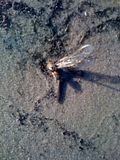
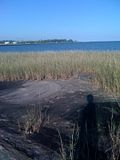
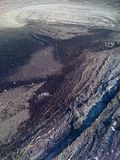
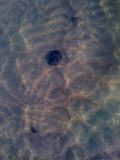
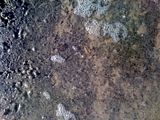
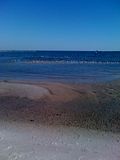
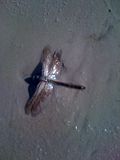
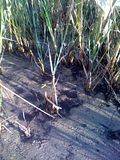
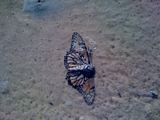
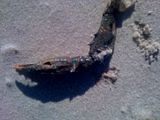
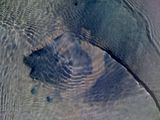
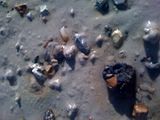
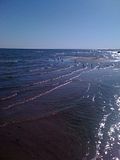
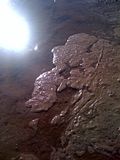
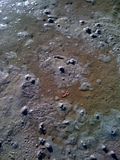




![[spill0816]](http://si.wsj.net/public/resources/images/OB-JP266_spill0_F_20100817025245.jpg)
